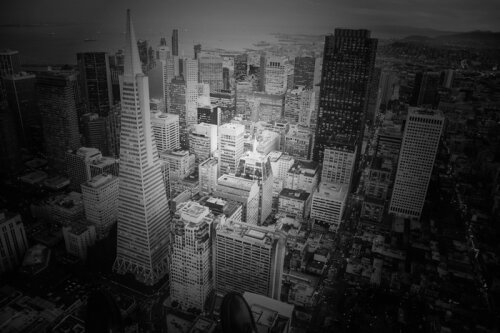Best Juvenile Law Lawyers in Atibaia
Share your needs with us, get contacted by law firms.
Free. Takes 2 min.
List of the best lawyers in Atibaia, Brazil
About Juvenile Law in Atibaia, Brazil
Juvenile Law in Atibaia, Brazil is an important area of the legal system that focuses on the rights, responsibilities, protection, and legal proceedings involving individuals under the age of 18. The field addresses a wide range of issues such as child protection, guardianship, juvenile delinquency, adoption, and parental rights. The applicable laws are mostly based on the Statute of the Child and Adolescent (ECA - Estatuto da Criança e do Adolescente), which ensures that minors are treated according to their developmental stage and offered opportunities for rehabilitation rather than solely facing punitive measures. Local family courts and the Conselhos Tutelares play a key role in resolving conflicts and promoting the best interests of minors in the city of Atibaia.
Why You May Need a Lawyer
There are several situations where individuals or families in Atibaia may require legal support in the area of Juvenile Law. Common scenarios include:
- Minors in conflict with the law, such as accusations of committing infractions or crimes
- Cases of child abuse or neglect, where protection measures may need to be enforced
- Issues involving custody, visitation, and guardianship disputes
- Adoption processes, including both national and international cases
- Ensuring access to education, health, and other social rights for minors
- Situations where the family environment is at risk or parental rights may be revoked
- Seeking advice on legal obligations of parents and guardians
A lawyer with experience in Juvenile Law can help navigate these complex situations, represent minors and families in court, provide guidance on rights and procedures, and work toward solutions that prioritize the well-being of the child or adolescent.
Local Laws Overview
Atibaia adheres to national legislation regarding Juvenile Law, with its practices guided primarily by the Statute of the Child and Adolescent (ECA). Local implementation involves municipal bodies, such as the Conselho Tutelar (Guardianship Council), the Public Prosecutor's Office, and the Juvenile Court (Vara da Infância e Juventude). Key aspects relevant to Atibaia include:
- Children under 12 are considered children, while those from 12 to under 18 are adolescents, with specific rights and protections for each group
- Juvenile offences are not treated as adult crimes but as "infractions" with measures focused on rehabilitation and social reintegration
- Cases of abuse, neglect, or risk to the child must be reported to the Conselho Tutelar, which intervenes and may initiate protective measures
- Adoptions are processed through the Juvenile Court and require careful legal scrutiny to ensure the child's best interest
- Family conflicts, such as custody or visitation, are resolved with an emphasis on keeping the family unit intact when possible, but always prioritizing the safety and development of the minor
- Local authorities work in partnership with specialized programs and services to support minors facing social risk
Frequently Asked Questions
What is the role of the Conselho Tutelar in Atibaia?
The Conselho Tutelar is a local authority responsible for safeguarding the rights of children and adolescents. They investigate and intervene in cases of risk, abuse, neglect, and violations of minors' rights, and may refer cases to the Juvenile Court when necessary.
How are juvenile offences handled in Atibaia?
Juvenile offences, called "infractions," are processed differently from adult crimes. Adolescents are given rights to legal representation and are subject to educational measures rather than strictly punitive sentences, such as referring them to social services or temporary placement in specialized facilities.
Can parents lose custody of their children?
Yes, in cases of severe neglect, abuse, or inability to provide care, the court may suspend or remove parental rights. The primary concern is always the safety and well-being of the child, and alternative guardianship will be sought when necessary.
Is legal representation required during juvenile court proceedings?
Legal representation is fundamental to guarantee the rights of the minor. During court proceedings, particularly those involving infractions, the minor must have a legal representative or public defender.
How is adoption processed in Atibaia?
Adoption must be formalized in the Juvenile Court, following Brazilian legal procedures. There are strict requirements regarding eligibility, background checks, psychological evaluations, and a focus on providing the child with a suitable family environment.
What rights do children and adolescents have under the law in Atibaia?
Children and adolescents hold fundamental rights to life, health, education, family, respect, freedom, and protection from neglect, discrimination, violence, cruelty, and oppression, as outlined in the ECA.
Can a minor be detained in Atibaia?
Detainment is considered a last resort. If a minor is involved in a serious infraction, they may be temporarily housed in a socio-educational facility, but always with due legal process and safeguards for their rights.
What actions should be taken if a minor's rights are being violated?
Any suspected violation should be reported immediately to the Conselho Tutelar or the Public Prosecutor's Office. Urgent protective measures may be taken, and legal support can be sought to ensure the safety of the minor.
Do separated parents in Atibaia have equal rights to their children?
Both parents have equal legal rights and responsibilities regarding their children, unless the court decides otherwise. All decisions aim to serve the child's best interests, considering factors such as safety, affection, and stability.
Where can I find free legal assistance for Juvenile Law matters?
Individuals can seek help from the Public Defender's Office (Defensoria Pública), the Conselho Tutelar, or local social assistance centers, which may provide guidance and legal aid, especially for those who cannot afford private counsel.
Additional Resources
If you or someone you know needs further information or assistance with Juvenile Law issues in Atibaia, the following resources can be helpful:
- Conselho Tutelar de Atibaia - Handles reports of child rights violations and provides protective measures
- Vara da Infância e Juventude (Juvenile Court) - Responsible for legal proceedings involving minors
- Defensoria Pública do Estado de São Paulo - Offers free legal assistance to those in need
- Ministério Público do Estado de São Paulo - Oversees the legal protection of minors and investigates rights violations
- Creas/CRAS Atibaia - Local social assistance centers offering support services for at-risk youth and families
- Municipal Department of Social Assistance - Provides support, counseling, and resource guidance to residents
Next Steps
If you believe you need legal assistance in the field of Juvenile Law in Atibaia, it is important to act promptly to ensure the best outcome for the minor involved. You should:
- Gather relevant documents and details related to your situation
- Contact the nearest Conselho Tutelar or the Juvenile Court for immediate protection or intervention if necessary
- Seek advice from the Public Defender's Office or a qualified Juvenile Law attorney in Atibaia
- Attend all scheduled meetings or hearings, and ensure the minor has legal representation
- Utilize available social services to support the minor's and family's well-being
Taking these steps can help clarify your rights and responsibilities, protect minors from potential harm, and offer a path forward that prioritizes the child's or adolescent's best interests.
Lawzana helps you find the best lawyers and law firms in Atibaia through a curated and pre-screened list of qualified legal professionals. Our platform offers rankings and detailed profiles of attorneys and law firms, allowing you to compare based on practice areas, including Juvenile Law, experience, and client feedback.
Each profile includes a description of the firm's areas of practice, client reviews, team members and partners, year of establishment, spoken languages, office locations, contact information, social media presence, and any published articles or resources. Most firms on our platform speak English and are experienced in both local and international legal matters.
Get a quote from top-rated law firms in Atibaia, Brazil — quickly, securely, and without unnecessary hassle.
Disclaimer:
The information provided on this page is for general informational purposes only and does not constitute legal advice. While we strive to ensure the accuracy and relevance of the content, legal information may change over time, and interpretations of the law can vary. You should always consult with a qualified legal professional for advice specific to your situation.
We disclaim all liability for actions taken or not taken based on the content of this page. If you believe any information is incorrect or outdated, please contact us, and we will review and update it where appropriate.









